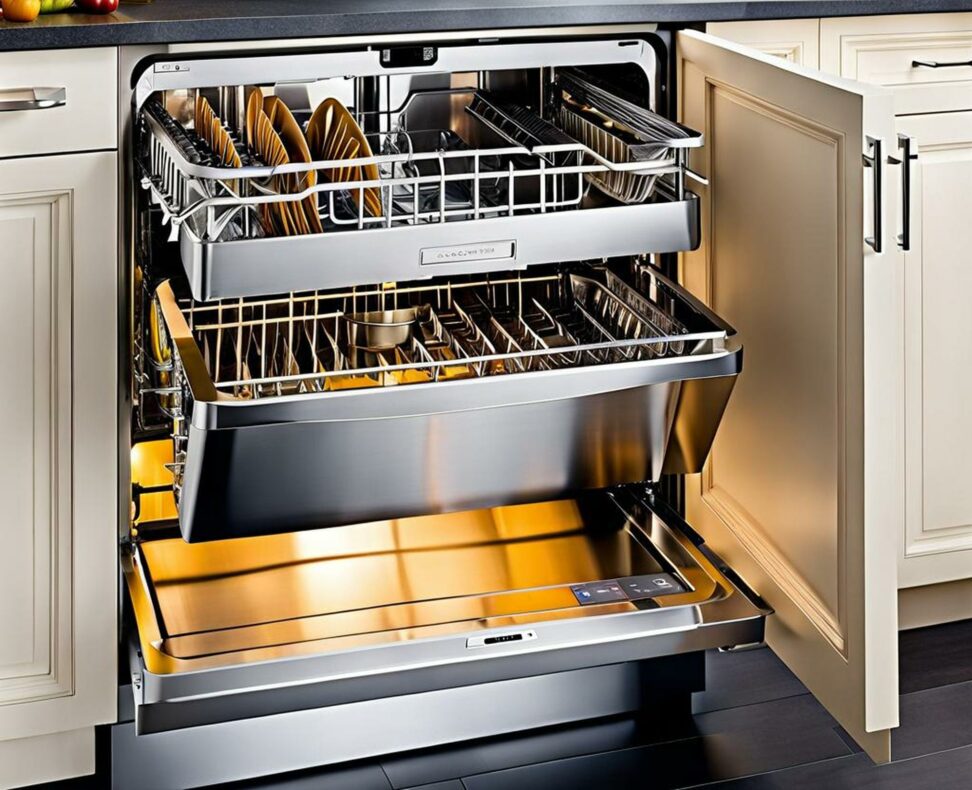Corner Dishwasher Installs for Small Kitchen Solutions
Adding a dishwasher can be a game-changer for any kitchen, no matter how small. For apartments, galley kitchens, and other compact spaces, the key is choosing the right sized dishwasher to fit in a tight corner. With some careful planning and elbow grease, you can install a space-saving corner dishwasher that will make your dishes sparkle.
A portable or countertop dishwasher that conveniently rolls out or sits on the counter is an option. But a built-in style offers a seamless look and doesn't take up precious counter space. Compact 18-inch wide models are ideal for squeezing into corners. Just be sure to measure carefully to ensure the dimensions work with your existing cabinetry.
Choosing the Right Compact Dishwasher
The first step is selecting the right corner dishwasher for your needs. Key features to consider include:
- Cycle options like quick washes and heat dry settings
- Adjustable racks to fit plates and pots
- Energy efficiency with lower water usage
- Noise rating, important for open floor plans
- Budget for the unit and professional installation
Well-known brands like Frigidaire, GE, Bosch, LG, and Whirlpool make reliable compact models. Visit showrooms to see options and talk to sales associates.

Planning the Installation Configuration
Once you’ve purchased your corner dishwasher, it’s time to prep for installation day. First, carefully measure from floor to counter height and cabinet depth. Compare to the dishwasher’s specifications to ensure a proper fit.
You’ll need an electrical hookup nearby. A dedicated outlet with GFCI protection is ideal. Note any limitations from your electrical panel and breaker capacity.
For plumbing, determine the route to connect to the hot water supply line and kitchen drain access below the sink. Installing a shutoff valve is also recommended.
Modifying Cabinets for a Built-In Look
The dishwasher will likely sit between base cabinets in your corner space. To integrate it seamlessly:
- Cut away the back cabinet panel to access plumbing.
- Trace and cut out an opening for the control panel to poke through.
- Attach mounting brackets at the proper height.
Remove any kickplates for a smooth interior fit. Then it’s time to tackle the electrical and plumbing.
Connecting Electrical and Plumbing
Running new electrical and plumbing lines involves shutting off water and power. If you’re unsure, consult a professional to be safe.
Feed the dishwasher electrical wire through the cabinet opening to connect to your prepared outlet. Double check proper grounding.
For water, attach a flexible stainless steel braided hose to the hot water shutoff valve below the sink. Make sure the connection is watertight.
Connect the drain hose to the sink drain pipe or garbage disposal if you have one. Use a hose clamp for a tight seal. Slope the hose so water flows downward.
The Final Push - Installation and Testing
You’re almost there! Slide the dishwasher into place, feeding hoses and wires through the cabinet cutout. Align with the mounting brackets and secure in place.
Run a test cycle to check for leaks, errors, and wash performance. Make any needed adjustments before replacing kickplates and doing final touches like caulking.
With your sleek, built-in corner dishwasher installed, it’s time to put it to work. Review the manual recommendations and use the right detergents to avoid suds issues.
Scrape dishes when needed, but don’t pre-wash by hand. Let your new dishwasher do the hard work. With the right prep and model, small kitchen corners can benefit from a handy dishwasher just as larger cookspaces do.